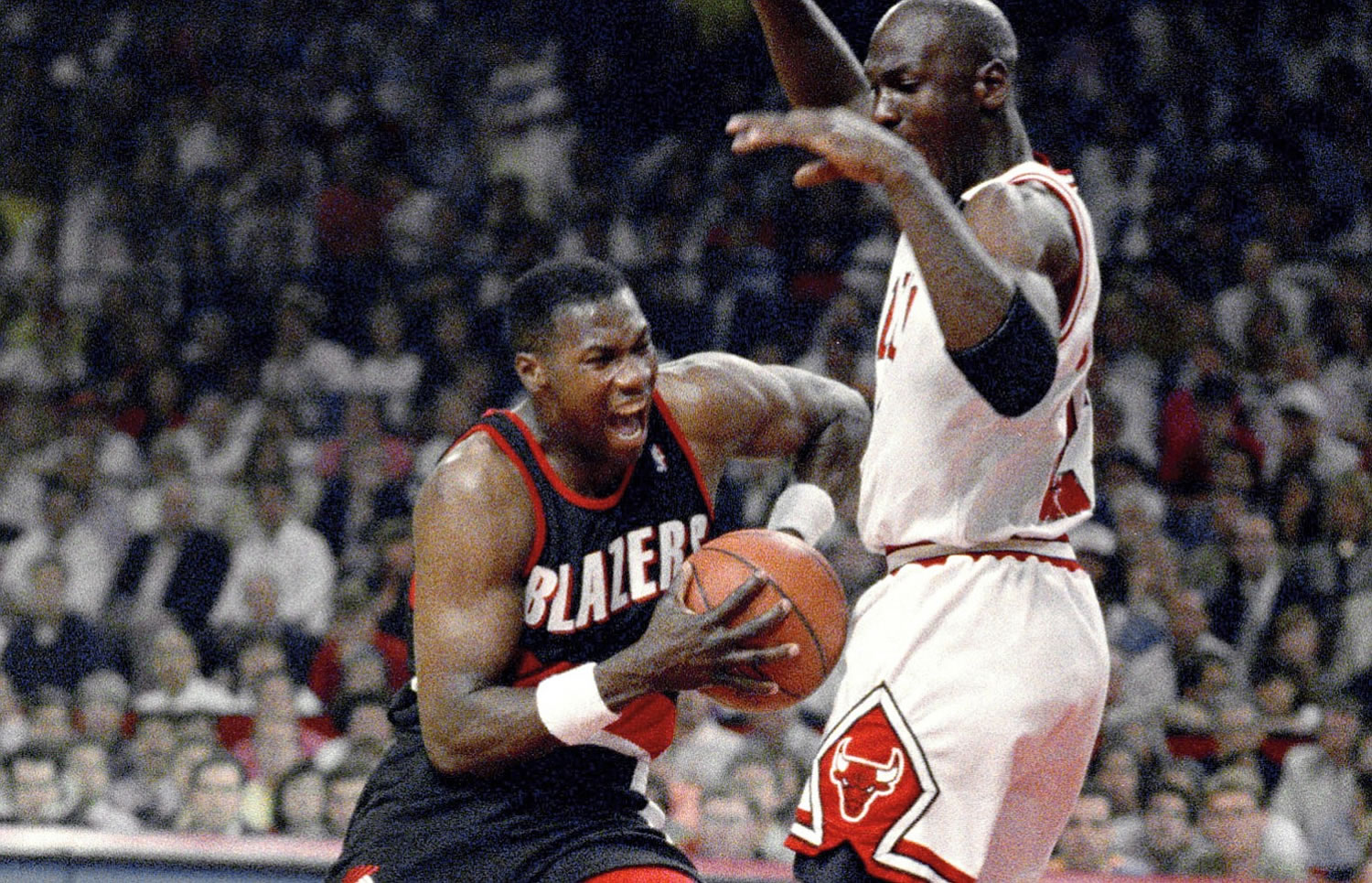Ex-Blazer lends his voice to wife’s battle with MS
PORTLAND — The absence of words from Terry Porter spoke the loudest.
Porter shared his love for his friend and former Portland Trail Blazers teammate Jerome Kersey, who died unexpectedly Wednesday. His speech was labored and broken.
The tears, however, flowed freely.
“Like so many of you this morning, I woke up hoping it was a bad dream,” Porter said, haltingly, at a Thursday morning press conference. “The joy and the smile, the way he embraced life. The way he touched people. Anybody who came across Jerome was just amazed.”
Porter’s sadness was shared by people in Clark County. Washougal Mayor Sean Guard had known Kersey since his Portland playing days, which stretched from 1984-1995.
More recently, their friendship strengthened through their involvement in local multiple sclerosis fundraisers and events. Both their wives have been diagnosed with the condition.
“For Jerome it was all about his smile,” Guard said in a phone interview from Olympia. “I don’t know if I have any pictures where he didn’t have that smile. It just carried through everything he did. He loved life. He loved people.”
Dr. Larry Lewman of the Oregon State Medical Examiner’s office told The Oregonian that Kersey, 52, died when a blood clot broke loose from his left calf, traveled to his lungs and caused a pulmonary thromboembolism.
Since he retired from the NBA in 2001, Kersey remained a fixture in the Portland area. He had been working for the Blazers as director of alumni relations.
The day before his death, Kersey appeared at a Portland high school with Porter and ex-Blazer Brian Grant to talk about Black History Month.
Former Trail Blazers announcer Bill Schonely said nothing seemed amiss when he saw Kersey on Wednesday morning.
“His last words to me yesterday morning were ‘Schonz, have a good day,’ ” Schonely said. “I had a good day for a while. Then we got the news.”
Kersey endeared himself to local basketball fans through his energetic and rugged play that helped Portland reach the NBA Finals in 1990 and 1992.
Drafted out of Longwood College in Virginia, Kersey bonded quickly with Porter, who also came from a small college, University of Wisconsin-Stevens Point.
“We had many talks about coming from those small schools,” Porter said. “We’d show all those guys from big schools what coming from a small school is all about.”
Those small-school guys found their niche in Portland, a small NBA market. It was as if a group of unheralded underdogs found a home base to take on the world. They loved Portland, and the city loved them back.
Kersey kept his small-town friendliness even as his NBA stardom grew. Guard said he had the rare ability to remember faces, conversations and jokes from months past, even though Kersey met dozens of people each day.
“When you’d talk to him, it was like you were the only person in his life at that moment,” Guard said. “It wasn’t superficial. He was the quintessential ambassador for the Blazers.”
Guard became friends with him when Kersey agreed to be a celebrity judge for a barbecue contest Guard organized.
Kersey’s generosity with his time made him so beloved in the community, Guard said.
“You just always knew he was looking for a way to say ‘yes’ instead of ‘no,’ ” Guard said.
Guard heard of Kersey’s death via text message Wednesday night. He joined thousands of people who are still reeling from the news.
“You’ve been through so many life situations together,” Porter said. “Whenever you lose one, especially this young, it’s a tough pill to swallow. Sometimes there’s no answer’s for it, why the Good Lord called him. Maybe he was missing an energy guy on his team.”
To honor Kersey, current Blazers guard Steve Blake will change his number from No. 25, which Kersey also wore, to No. 5.
That clears the way for the Blazers potentially to retire Kersey’s number.




